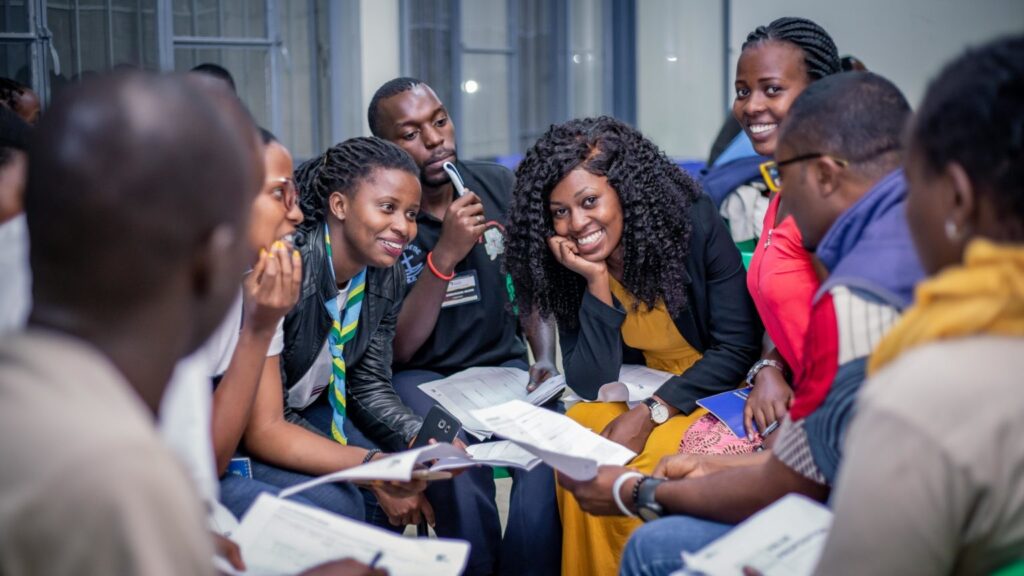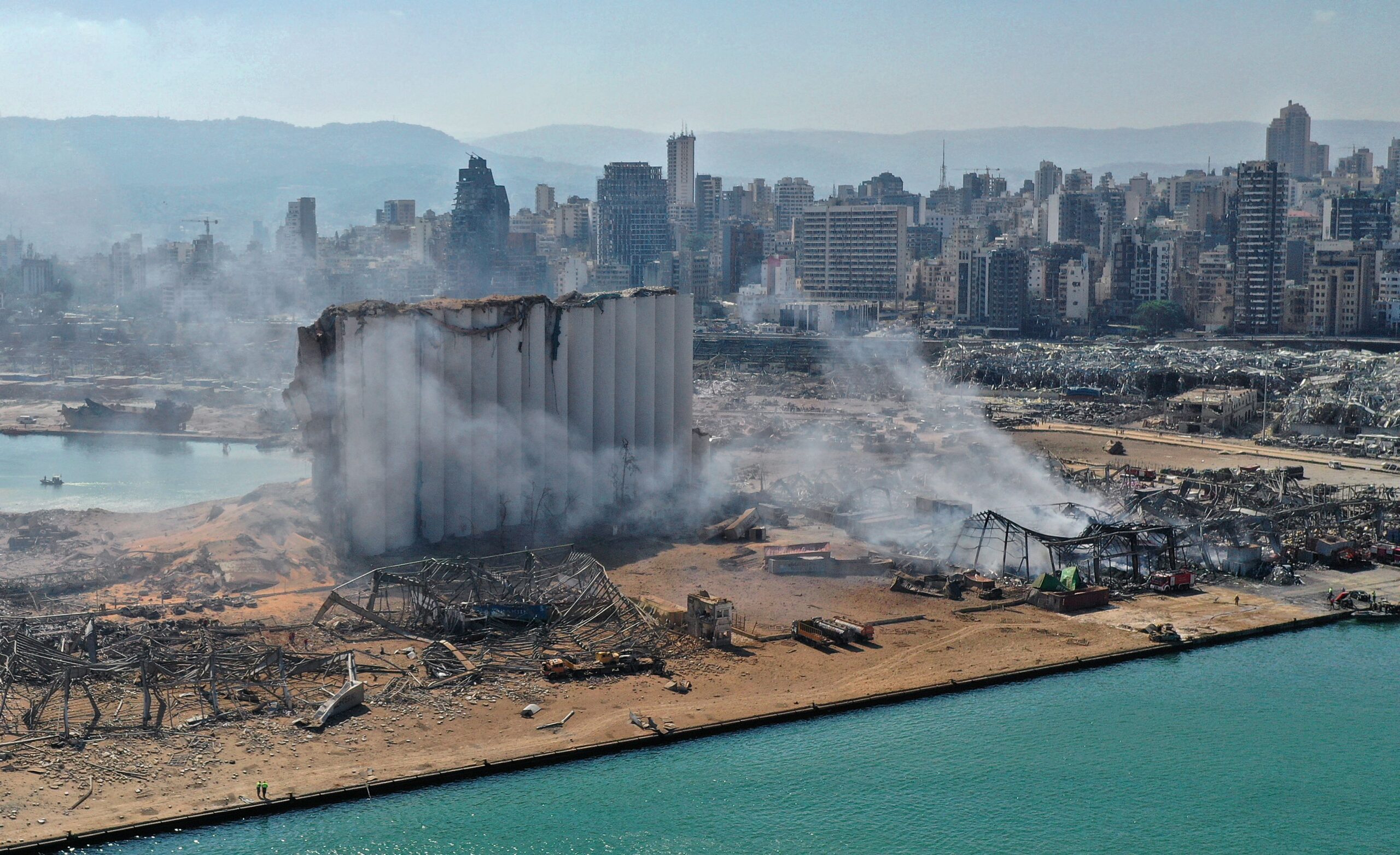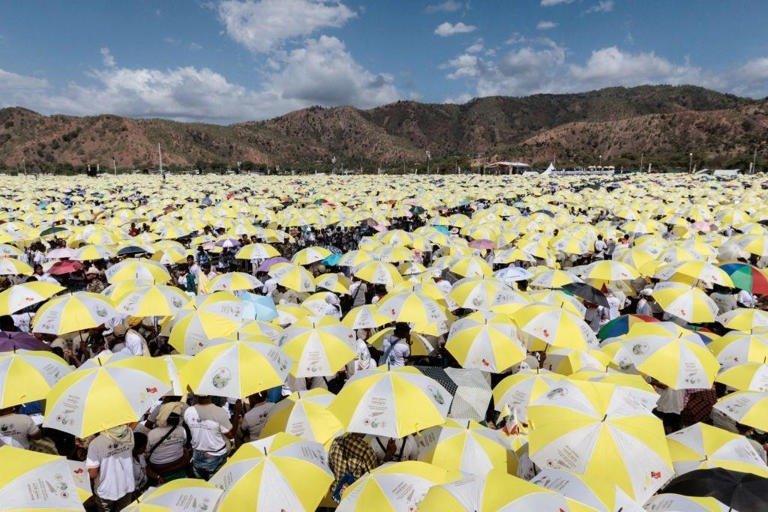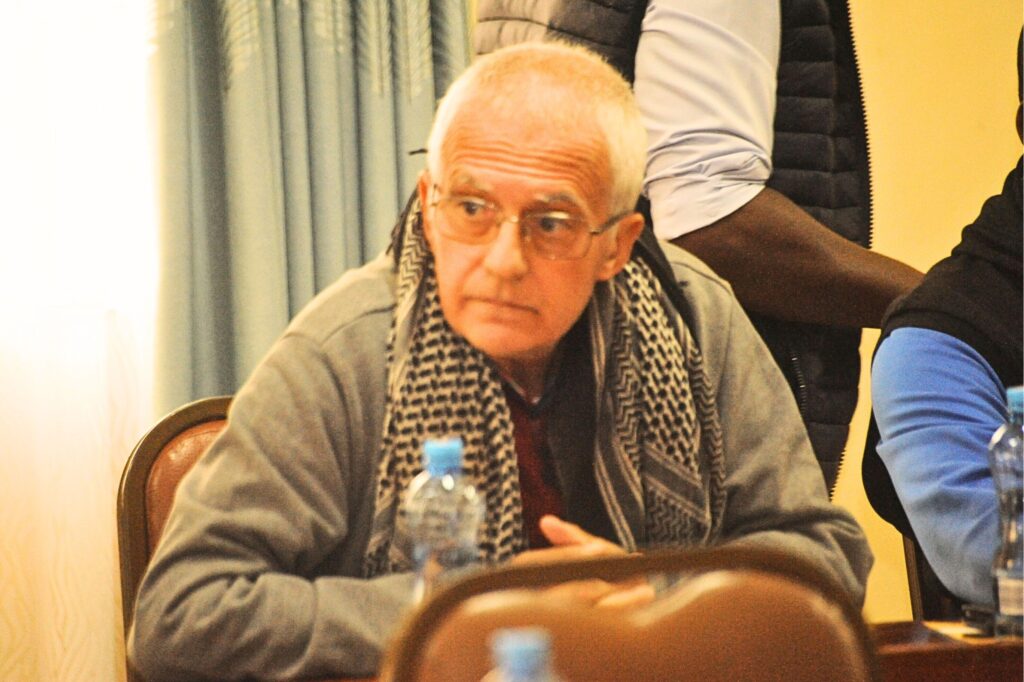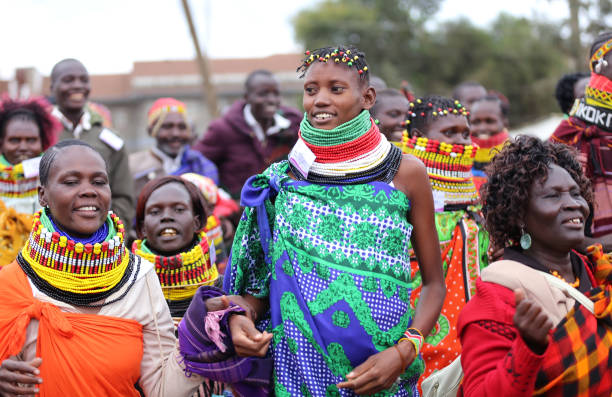Human basic needs vs unlimited appetites
It is a mistake to regard humanity as a parasite on creation, as if we were a foreign intrusion into the biosphere. This is not how God sees us. He made us stewards of his creation, but we have betrayed this vocation and become exploiters and degraders of the earth. There is no need to curb humans, let alone cull them. “Demographic growth is fully compatible with an integral and shared development” (Pope Francis). What is needed is for humans to radically change their lifestyles.
Anticipating World Population Day on 11th July this year, I am reviewing a book, which says that human beings are “parasites, plundering, destroying and sucking the life out of the planet”. I find this to be quite shocking language, which I resist, as I turn every page of this book.
Are we not created in the image of God (Gen 1:27)? Has not God made us “little less than a god”, “crowned with glory and beauty”, “lords of the work of his hands”, and put all things under our feet (cf Ps 8:5-6)? Surely, God would not do this to a parasite on creation. Would God have blessed us and told us to “be fruitful and multiply, fill the earth and subdue it”, if he knew we were going to make a mess of our stewardship?
The author of the book is concerned that human beings are taking too much from the earth, in ways that are not sustainable, and threatening the existence of tens of thousands of other species of our planet. And this is true. We are responsible for the biggest extinction since the death of the dinosaurs. Scientists are now talking of the “sixth great extinction”, where populations of plants and animals are being wiped out. They caution us that the web of life is breaking down, and in time, those parts of the web that support us will no longer exist, and our own species will become extinct.
Damaging the planet
 The impacts of population growth in Africa are not very different from most other places in the world. Modern human activity is causing untold damage to our planet. Pesticides kill not only problem insects, but also bees that are important for pollinating our crops, and animals that eat those insects. The oceans are exploited beyond their ability to regenerate enough fish. Fertilisers run off from fields and shambas into rivers, causing algae blooms, which suffocate fish and animals.
The impacts of population growth in Africa are not very different from most other places in the world. Modern human activity is causing untold damage to our planet. Pesticides kill not only problem insects, but also bees that are important for pollinating our crops, and animals that eat those insects. The oceans are exploited beyond their ability to regenerate enough fish. Fertilisers run off from fields and shambas into rivers, causing algae blooms, which suffocate fish and animals.
The weather is no longer stable. Many parts of our continent are turning into deserts. This year, thousands of people in Eastern Africa have been displaced by floods from the ‘long rains’. Huge tracts of wetland are being dried up or deforested, so that farmers can plant more grain or palm trees. This change in the use of land causes ecological instability.
World overpopulated?
Scientists say that we are trying to feed too many people, and that is why we resort to agriculture and fishing on an industrial scale. They say that our planet has reached its carrying capacity, and that humans need to respect the earth’s natural limits to growth. The United Nations has a special division committed to considering questions of population, such as food stability, nutrition, sustainable development and, most recently, the effect of Covid-19 on world fertility. They make the following projections: human population will reach 8.5 billion by 2030, 9.7 billion by 2050, and 11.2 billion by 2100. These figures try to take into account many variables and unforeseeable events. On the basis of the figures, the general advice of the Population Division is that we should make efforts to limit population growth.
Responsible parenthood
 There has been a long-running disagreement between the Catholic Church and the United Nations on this question. Of course, we know that the Church supports responsible parenthood and family planning. She does not encourage us to have families we are unable to support. But the Church is opposed to what she regards as the opposite pole, and a main pillar of the United Nations population policy, namely a ‘contraceptive mentality’, which is said to discourage family life. Catholics point to the damage done in China with its ‘one-child policy’. Many baby girls were killed or abandoned, because baby boys were preferred. This has completely skewed their gender balance, and now there are millions of young men who will never find a Chinese wife. Recently, China has announced that it will allow couples to have up to three children, after census data showed a steep decline in birth rates.
There has been a long-running disagreement between the Catholic Church and the United Nations on this question. Of course, we know that the Church supports responsible parenthood and family planning. She does not encourage us to have families we are unable to support. But the Church is opposed to what she regards as the opposite pole, and a main pillar of the United Nations population policy, namely a ‘contraceptive mentality’, which is said to discourage family life. Catholics point to the damage done in China with its ‘one-child policy’. Many baby girls were killed or abandoned, because baby boys were preferred. This has completely skewed their gender balance, and now there are millions of young men who will never find a Chinese wife. Recently, China has announced that it will allow couples to have up to three children, after census data showed a steep decline in birth rates.
The sin of extreme consumerism
The important question is: “Are there too many human mouths to feed?” In paragraph 50 of his encyclical on care for our common home, Laudato si’, Pope Francis answers with an emphatic “no”. He says that the population question is a mistaken starting point, when we are asking why so many people are poor. Quoting the Compendium on the Social Doctrine of the Church, he writes: “While it is true that an unequal distribution of the population and of available resources creates obstacles to development and a sustainable use of the environment, it must nonetheless be recognised that demographic growth is fully compatible with an integral and shared development”. The problem is extreme consumerism, and not population growth. A small number of people have more than they could ever use or need, while others are literally starving.
Human-made imbalances
The Pope goes on to say that we need to find ways to distribute resources fairly, so that the rich and the poor all have access to what they need. We should not waste about 1/3 of the food that is produced (as some people estimate). He quotes one of his past catecheses, saying that, “whenever food is thrown out, it is as if it were stolen from the table of the poor”. But right at the end of the paragraph, Pope Francis concedes that “attention needs to be paid to imbalances in population density”, because a rise in consumption does lead to complex situations, which have an effect on “environmental pollution, transport, waste treatment, loss of resources and quality of life”. Ultimately, his advice is not very different from the 2021 Resolution on population, food security, nutrition and sustainable development of the UN Commission on Population and Development.
To Pope Francis’ wise words, I would add that Christians need to consider not only human population, but also the populations of fish, birds, methane-producing livestock, insects, trees, grain foods, fungi and all the millions of species on our earth. Any imbalance causes problems for Mother Earth, and major suffering that will be very hard to undo.






